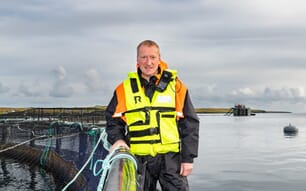Scientists at the University of Puerto Rico, working with Caribbean resource managers, are conducting the current research in an effort to protect populations of commercially and recreationally important grouper, one of the most valuable fisheries in the region. Groupers were once one of the most important species found in the fisheries within Puerto Rico. In 1975 the catch totaled 980,000 pounds, but since then has steadily declined such that in 2005 it was less than 83,000 pounds, a reduction of more than 90 percent.
Groupers and other fishes make characteristic sounds when they gather to spawn. By recording these sounds with an underwater microphone, either lowered from a boat or mounted on the bottom, scientists can tell not only where the fish are, but also when and how many are there. The research may allow the technique to be expanded in the future to other species’ spawning areas. Protecting spawning locations is a critical element in recovery of depleted populations.

This research technique has high potential to aid not only in the protection and restoration of fish species in shallow water coral reef ecosystems, but is also being employed in NOAA-funded research at UPR on largely unexplored deeper water coral reef ecosystems, that includes species such as yellowfin and black grouper.
“This research is of keen interest to the Caribbean Fishery Management Council in its efforts to preserve and restore depleted fish stocks in the Caribbean,” said Richard Appeldoorn, Ph.D., director of the Caribbean Coral Reef Institute (CCRI). “Fish spawning aggregations are critical to the survival of many reef species in the Caribbean Basin. This research, which is focused on the red hind, a type of grouper, has potential to aid in the discovery and monitoring of spawning aggregations of many other fish species that are of high economic and ecological importance in the region.”
A research team, working through CCRI at the University of Puerto Rico, led this research in partnership with the University of South Florida and NOAA Fisheries. The findings were presented in the August 2012 issue of Marine Ecology Progress Series. Research funding to CCRI is provided by the NOAA Coral Reef Conservation Program and administered by NOAA’s National Centers for Coastal Ocean Science through a cooperative agreement with the University of Puerto Rico.




